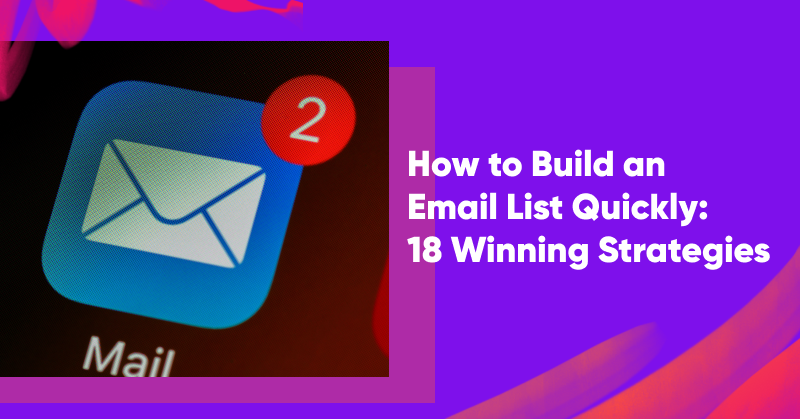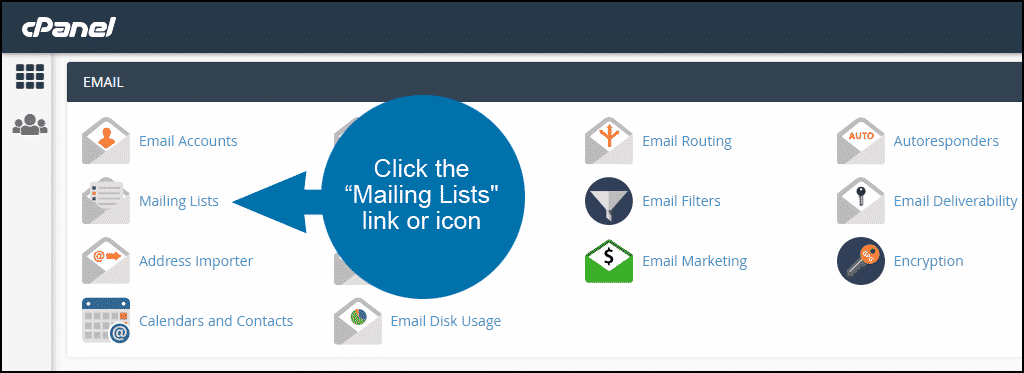20 Free Pieces Of Advice For Choosing Email List Sellers
What Should I Consider When Buying An Pathologist Mailing List?To ensure that you are receiving accurate information that is legal and meets your marketing objectives It is important to take into consideration the following key elements. Here are the major elements to be considered. Quality of data and accuracy
Source of Data: Verify the data's source. This could be professional directories such as health databases or verified opt in contacts. This will guarantee that the addresses you receive are up-to-date and accurate.
Verification Process: Confirm that the email list is current. The service provider should have a procedure for cleaning and validating emails, removing inactive or incorrect addresses. High-quality lists are more likely to deliver emails due to their low bounce rates.
Segmentation and Customization: Search for lists that allow you to separate by the location or subspecialty (e.g. pathology in forensics or clinical pathology), experience years, hospital affiliations, etc. The ability to customize your marketing allows for more specific targeting and increases your chances to get your message to the right people.
2. Legal Regulations
Data Privacy Regulations - Ensure that the email list is compliant with data privacy laws like the General Data Protection Regulation in Europe and the California Consumer Privacy Act in the U.S.A. Data from pathologists must be collected in a legally compliant manner, yet keeping in mind privacy of the individual.
CANSPAM Act - If you are looking to target U.S. Pathologists or live in the U.S.A. Make sure that the email list complies the CANSPAM Act. This law regulates commercial emails. Non-compliance may result in heavy penalties.
Opt-In Consent: Confirm that the emails in the list were collected with the correct opt-in consent. This will ensure that pathologists have consented to promotional content to be sent, reducing the chance of spam complaints.
3. Provider Reputation
Credibility of the Provider: Choose an established provider that has a track record of delivering precise and accurate email lists. To get a better understanding of the service, check reviews, testimonials, and references from healthcare marketers.
Transparency - The provider must be clear about the methods employed to collect data as well as how often it is updated. Avoid providers who are vague when it comes to the sources of their email lists.
Customer Support: You should look for a provider with an experienced customer service team for any technical difficulties or need assistance with your list.
4. Cost and Return On Investment (ROI).
Pricing Model: Consider the different pricing options available, regardless of whether you're paying per person or a fixed cost for the database, or signing up. The price should be compared with your marketing budget and the potential return on the investment (ROI).
Refund Policy: Some service providers offer replacement or refund guarantees if a significant number of emails are invalid or do not meet the promised standards. Make sure the provider has clearly defined refund or replacement policy.
Value for Money - Check the price of a list with its quality, level of segmentation, and other services (e.g. campaign management and CRM integration). If the list is not delivered, it may not be effective.
5. Data Ownership and Usage
License Rights and Usage Rights - Determine if the list will be used just once or you will own the list for ongoing campaigns. Certain providers offer a one-time use license while others provide unlimited use. This is beneficial for long-term marketing strategies.
Exclusive vs. shared lists: Determine if the list is exclusively you or is shared with other people. Exclusive lists can yield better responses as the recipients won't be subjected to an overwhelming number of emails from different sources.
6. Data Integration and Format
Compatibility With CRM/Email Tools: Make sure that your email list is compatible with the CRM or email marketing software that you currently use. The data should be in a standard format like CSV, Excel or other formats that can be easily imported.
Data Segmentation: Consider the ease to segment and sort the list once it is integrated. Effective segmentation is crucial in creating personalised emails that are more likely be received and read.
7. Ethical Aspects
Relevance of your message: Pathologists are highly-skilled professionals. Make sure your message products or services are relevant for their needs. Sending out irrelevant information may damage the image of your business or cause spam complaints.
Spam Reports could result from the sending of too many emails or not requesting content. Make sure you plan your campaigns well in order to avoid damaging the reputation of the sender.
Conclusion
Purchasing a pathologist email list can be a powerful marketing tool if done properly. To maximize your marketing potential prioritize the quality of your data legal compliance, as well as the provider's reputation. It is important to tailor your list to meet your specific requirements and follow the rules of data privacy and ethical marketing guidelines. Take these considerations into account when creating an effective and profitable mailer that is targeted to pathologists. Have a look at the top pathologist email list for more info.

What Should I Consider When Buying A Urgent Care Email List?
To determine if an urgent care email database is effective, accurate, compliant and pertinent to your marketing objectives You must consider various aspects. Here are key considerations. Data Quality and Accuracy
Source of Data: Ensure that the data provider gets their information from credible sources like medical associations, healthcare databases, or directories for professionals. Avoid lists generated by scraping data or unreliable means as they could contain incorrect or outdated data.
Verification Process: Confirm that the list of email addresses has been checked and maintained regularly. A reputable provider will have a rigorous verification procedure to eliminate inactive, invalid, or duplicate email addresses. This increases the likelihood of delivery and reduces bounce rates.
Segmentation and Targeting: The list should offer segments such as location (city or region, state or city) and the size of the urgent care facility, specialties offered (e.g. pediatrics, diagnostics) and decision-makers' roles (e.g., doctors or practice owners, etc.). The lists that are targeted will increase your outreach and increase engagement.
2. Compliance with Legal Regulations
Data Privacy Laws â Ensure that your list complies fully with the applicable law on data protection. This includes the General Data Protection Regulations (GDPR) for Europe, California Consumer Privacy Acts (CCPA) for the U.S. and other local laws. This means that email addresses must only be collected after a consent to the collection and processing.
CAN SPAM Act: In the U.S.A. all marketing emails are subject to the CAN SPAM Act. It is crucial to include an easy and simple opt-out feature, and avoid making use of misleading subject lines as well as your physical address. Failure to comply with the law could result in damages to your reputation.
Opt-In Consent - Make sure that all recipients of the email address you have on your list have expressly agreed to receive marketing messages from third-party companies. This will reduce the risk of spam and legal complaints.
3. Provider Reputation
Select a reputable provider: A proven record of providing high-quality and compliant email lists is a reliable indicator. You can determine a company's credibility by reading reviews, testimonials, and cases studies.
Transparency. The provider should offer information about the source of data and frequency of updates. This could be a sign of poor quality data when a provider cannot give specific information regarding their methods of collecting data.
Customer Support: A solid customer support team is crucial for those who require help in tackling technical issues and list customization, or even compliance. A customer-friendly service will aid you in maximizing the use of your database for email.
4. Return on investment (ROI) and cost
Pricing Models: Email lists suppliers generally offer different pricing structures such as pay-per-contact and flat costs. The pricing model should be assessed in relation to your marketing budget and the return on investment you anticipate. Compare the cost and quality of the lists to relevant information.
Refund or replacement policy. Reputable providers provide the option of refunds or replacement policies in the event that the majority of emails are invalid or non-deliverable. Be sure to understand the terms of this policy before you purchase.
Value for money: Don't go with the most affordable alternative. Instead, look for lists that are reliable and include a thorough segmentation. Investing money in a quality list will boost your engagement rate and give you a greater return on the investment.
5. Data Ownership, Usage and Use
Lists which can be used multiple times, or for only single campaigns: Be clear about whether the list is intended to be used once, or multiple times. Lists which allow for multiple uses will provide more value. This is especially true if you are planning to launch ongoing campaigns.
Exclusive vs. Shared Lists - Find out whether this list is exclusively to your company or is shared with other buyers. Lists shared with others can cause list fatigue as recipients may receive several marketing messages. Engagement rates are likely to decrease.
6. Integration and Data Format
CRM Compatibility: Make sure your list of email addresses is delivered to you in a format compatible to, such as CSV (Comma Separated Values) or Excel. This allows for seamless integration and lets you begin your campaigns in a short time.
Usability Ease of Use: Your email list should permit you to sort the emails according to your own preferences. A well-organized list of email addresses makes targeting and personalization easier.
7. Ethical Concerns
Relevance: Professionals in urgent care are busy and should make sure that your content is relevant and valuable. Tailor your messaging to meet their needs like medical equipment, medical supplies or technology for healthcare that is compatible with the operations of urgent care. Inadequate messages could damage your reputation and decrease engagement.
Beware of spam: limit the frequency of your email. Sending too many emails or unwelcome messages could result in spam complaints and reduce your reputation as a sender.
Conclusion
Be sure to consider the quality of data and legal compliance, as well as reputation when purchasing an urgent-care email list. Make sure the list has been divided. The information should be regularly updated and it must comply with all privacy regulations. Through sending relevant content and investing in an effective and high-quality mailing list you will maximize engagement and get a good return for your investment. Read the top rated urgent care email list for blog guide.
